Hello, and welcome to another Tinto Talks, the happy Wednesdays where we talk about Europa Universalis V!
Today, we will talk about the Tonal religions! This is a religious group that covers the Mesoamerican religions:
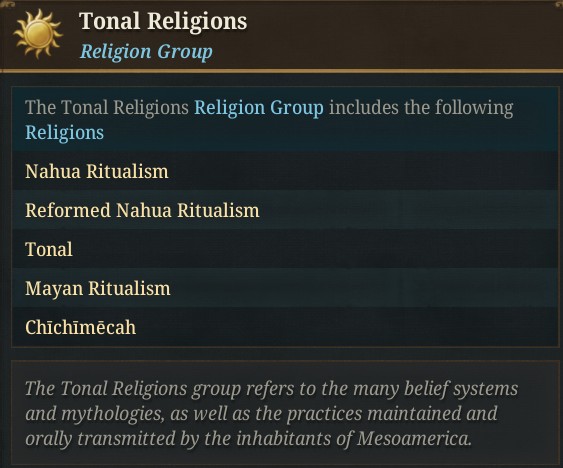
As usual, please consider all UI, 2D and 3D Art as WIP.
Let's start with Nahua Ritualism, which is the religion in the group that has more detailed features:
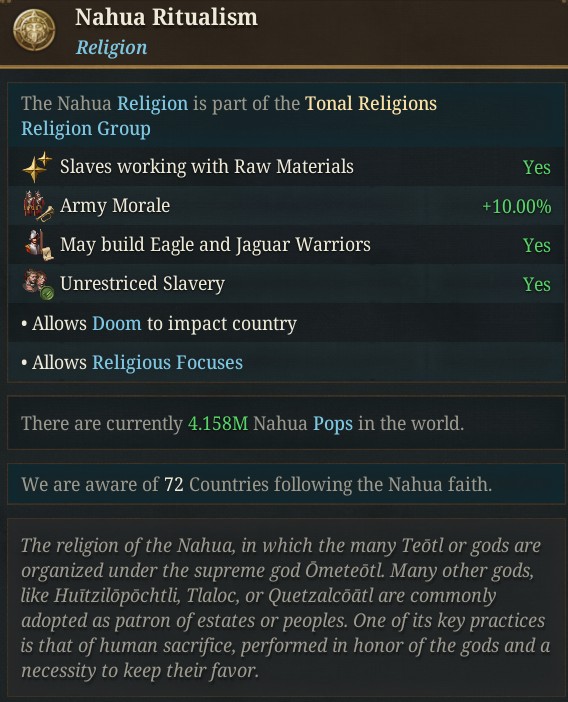
This is the panel of the religion:
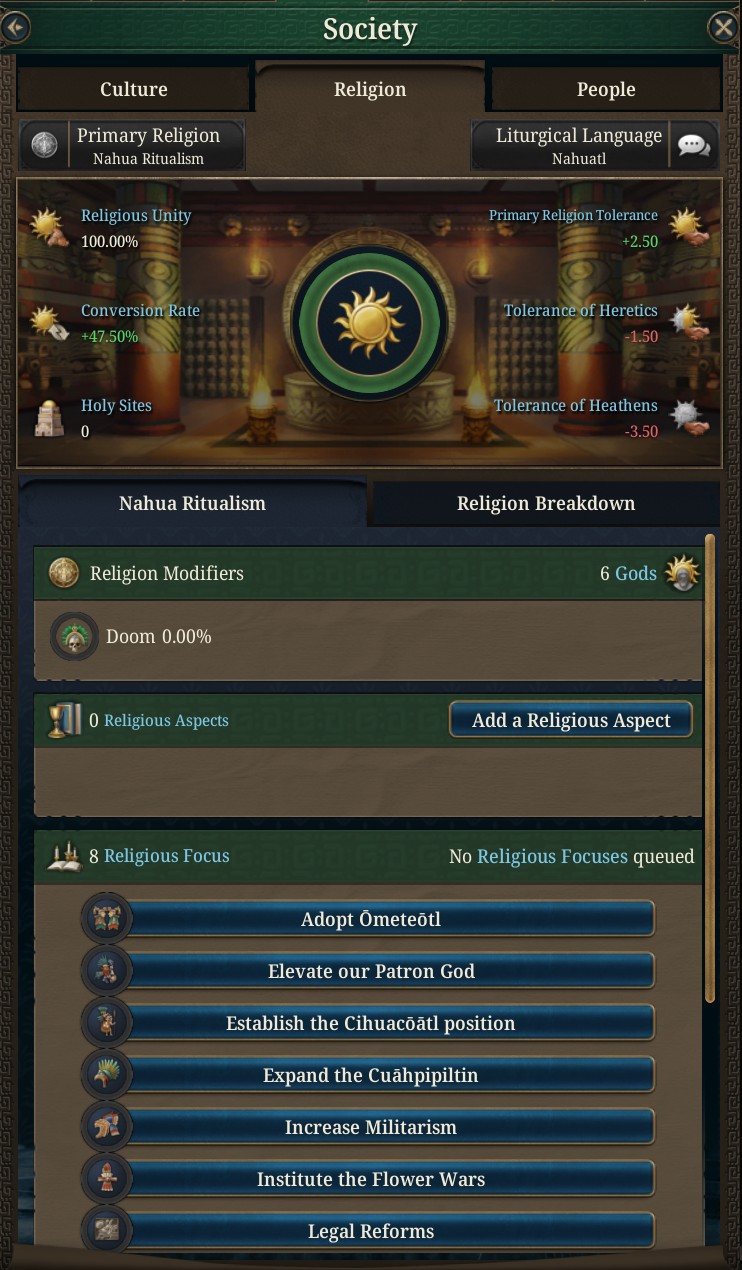
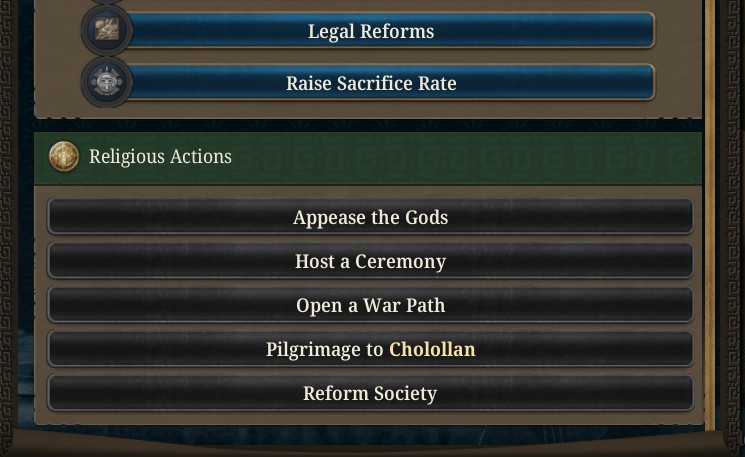
Let’s start with the core mechanic of the Nahua Ritualism, an old EU4 friend, Doom:



As you can see, Doom accumulates over time, and the bigger the country is, the more Doom it accumulates. It can be mitigated either by performing some mechanics, such as killing enemies and looting locations, or by some of the Religious Actions. But there’s only one way of completely escaping from it, which is Reforming the religion. This can be achieved by passing by enough Religious Focuses, the former EU4 ‘Reforms’:
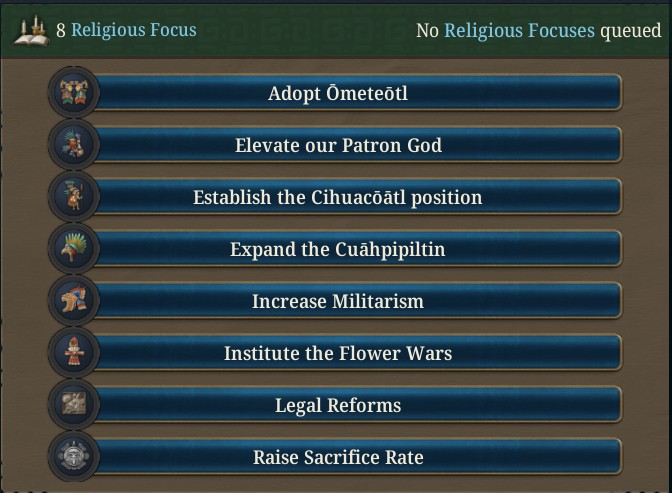
These Focuses are a necessary pain, as they give a debuff to your country while they’re active, but you need to accumulate some of them to be able to reform the religion. Here you have some of them.
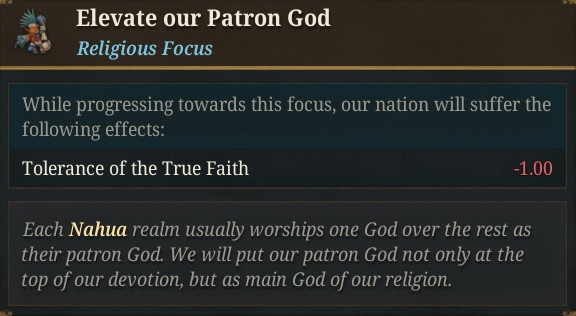


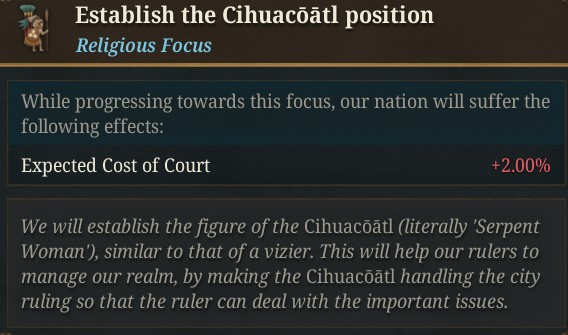
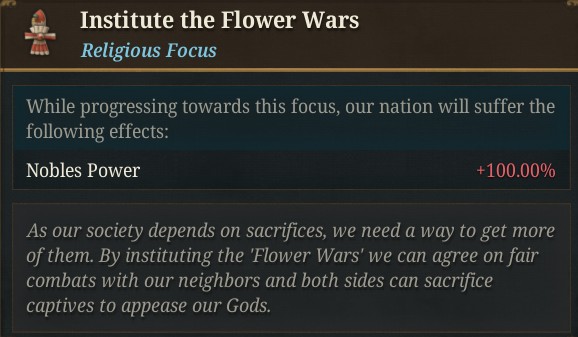
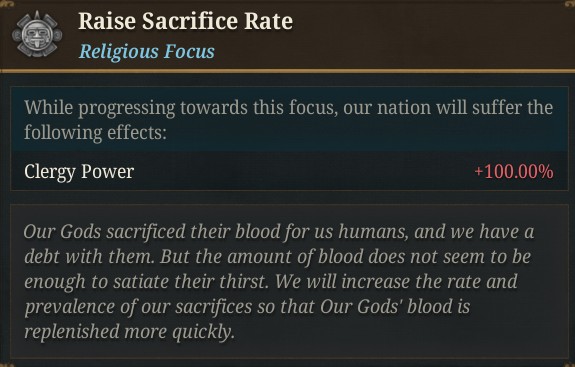
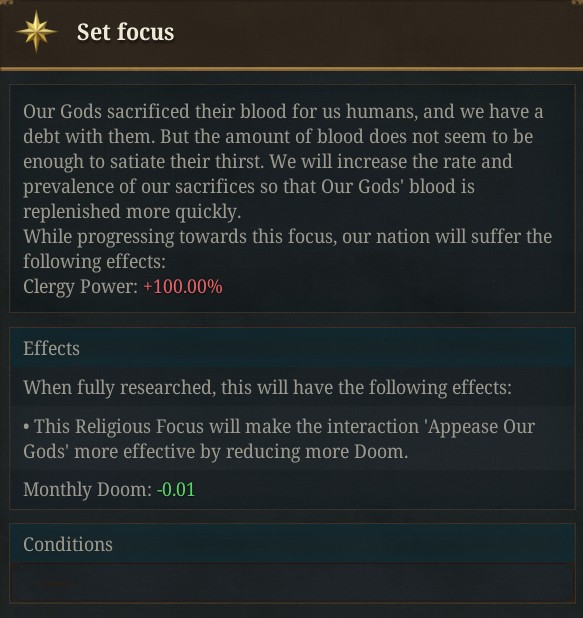
These are the available Religious Actions:
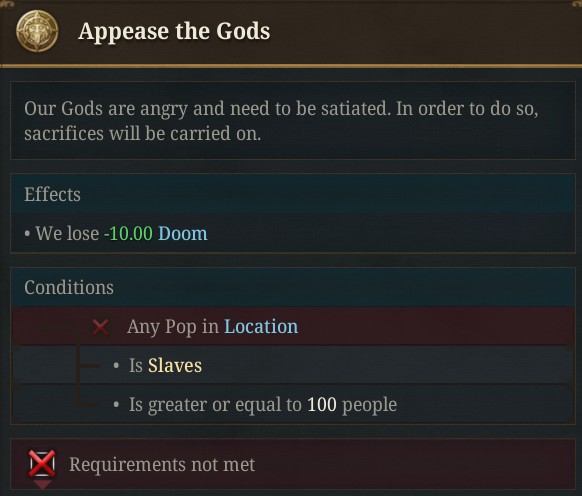
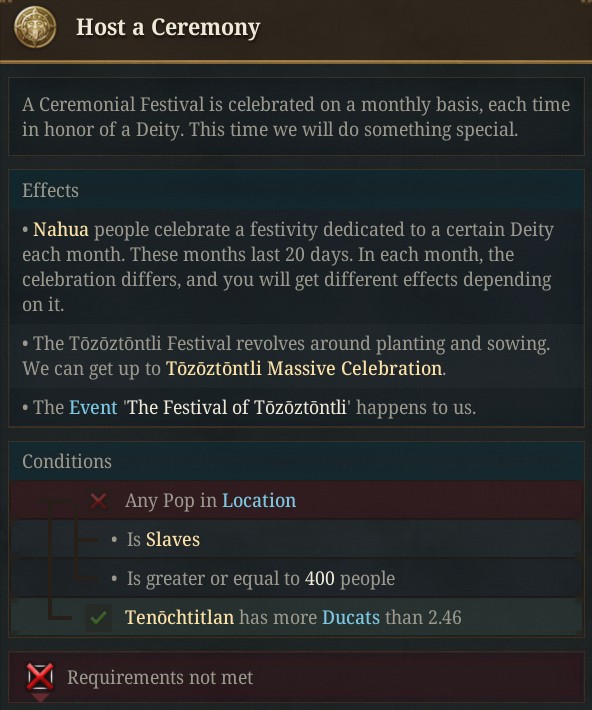
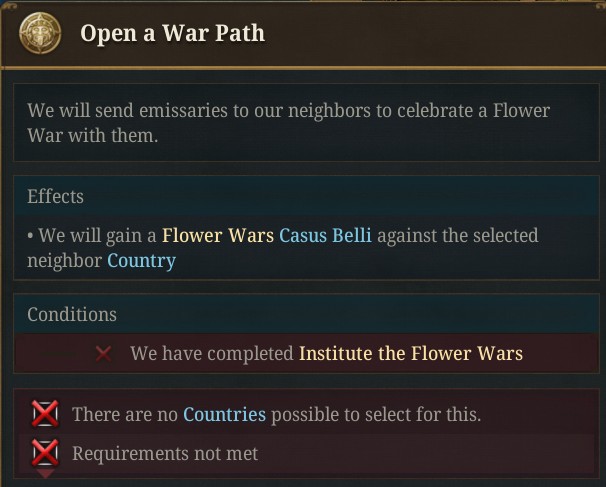
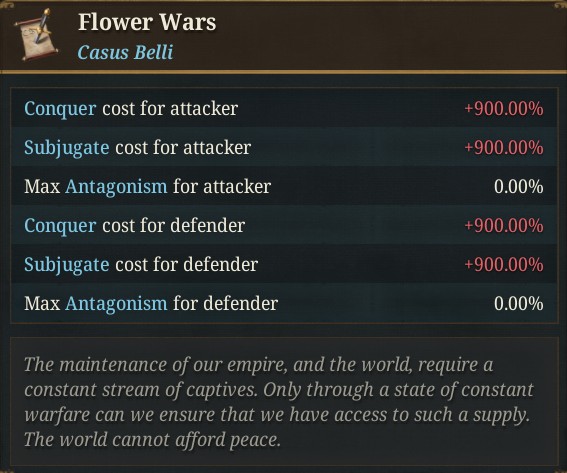
The last action, Reform Society, allows to Reform the religion when enough Religious Aspects have been enforced, but it has a big con: It triggers a disaster, 'Reform Society', which needs to be resolved to become a 'Reformed Nahuatl Society':
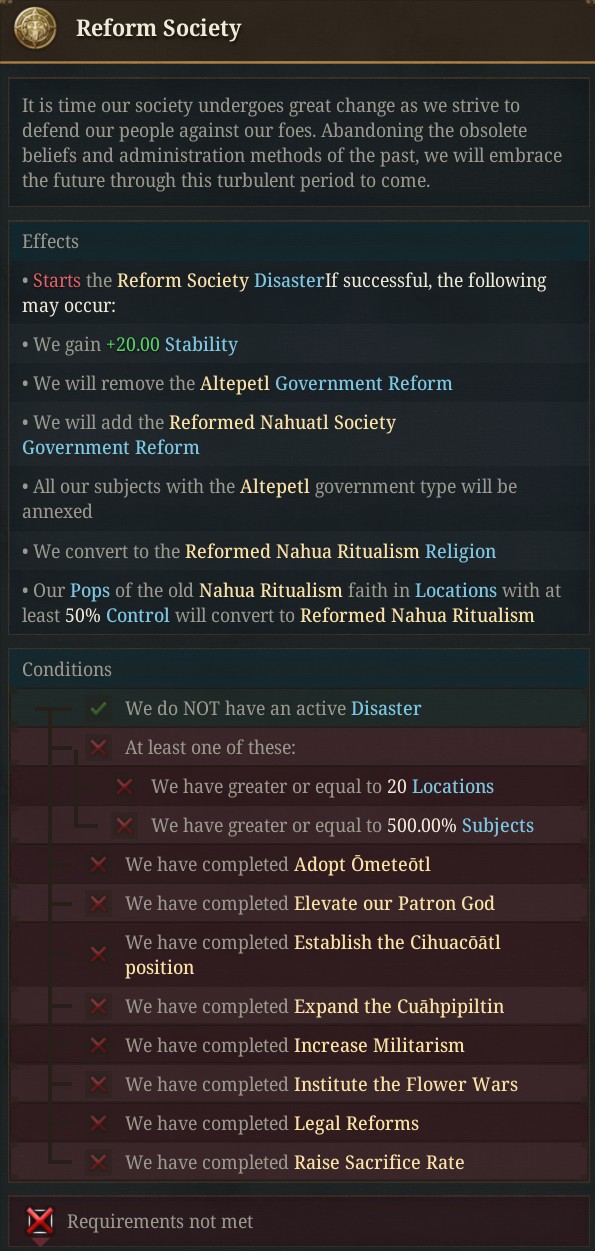
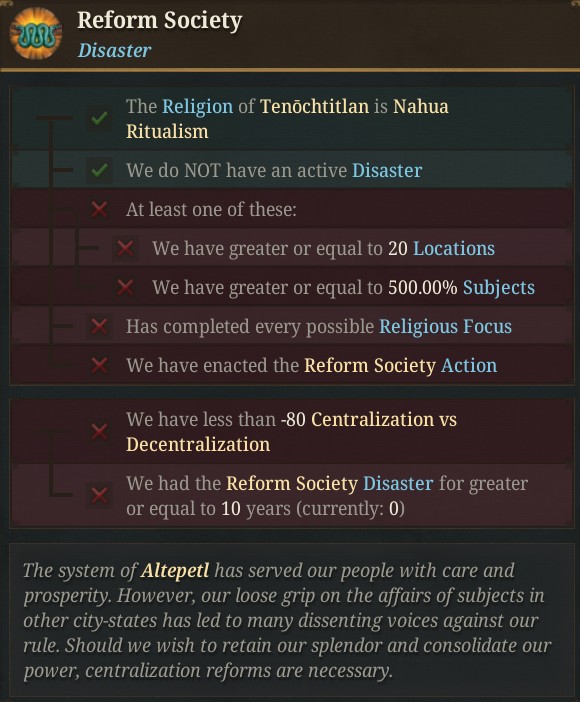
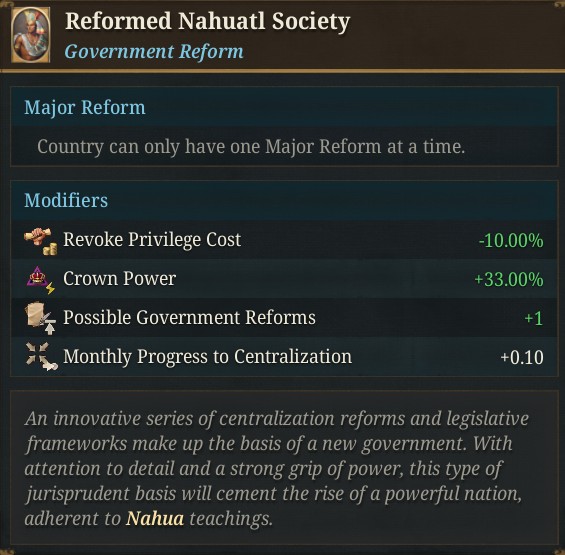
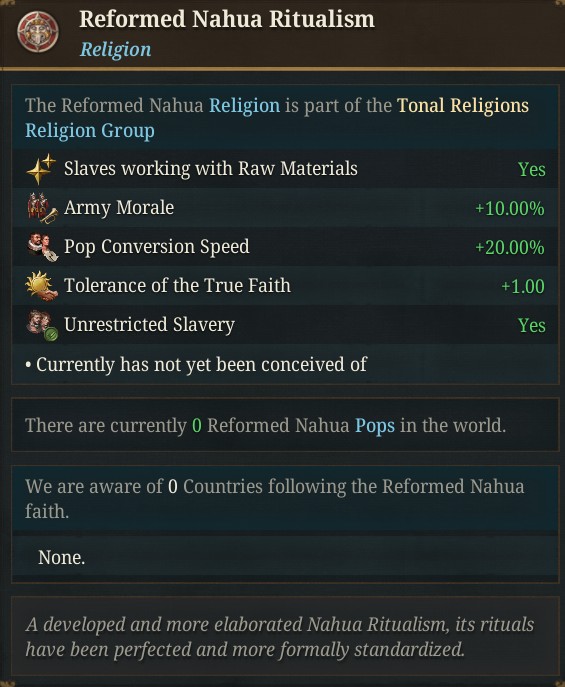
Let’s talk now about another of the Tonal religions - Maya Ritualism:
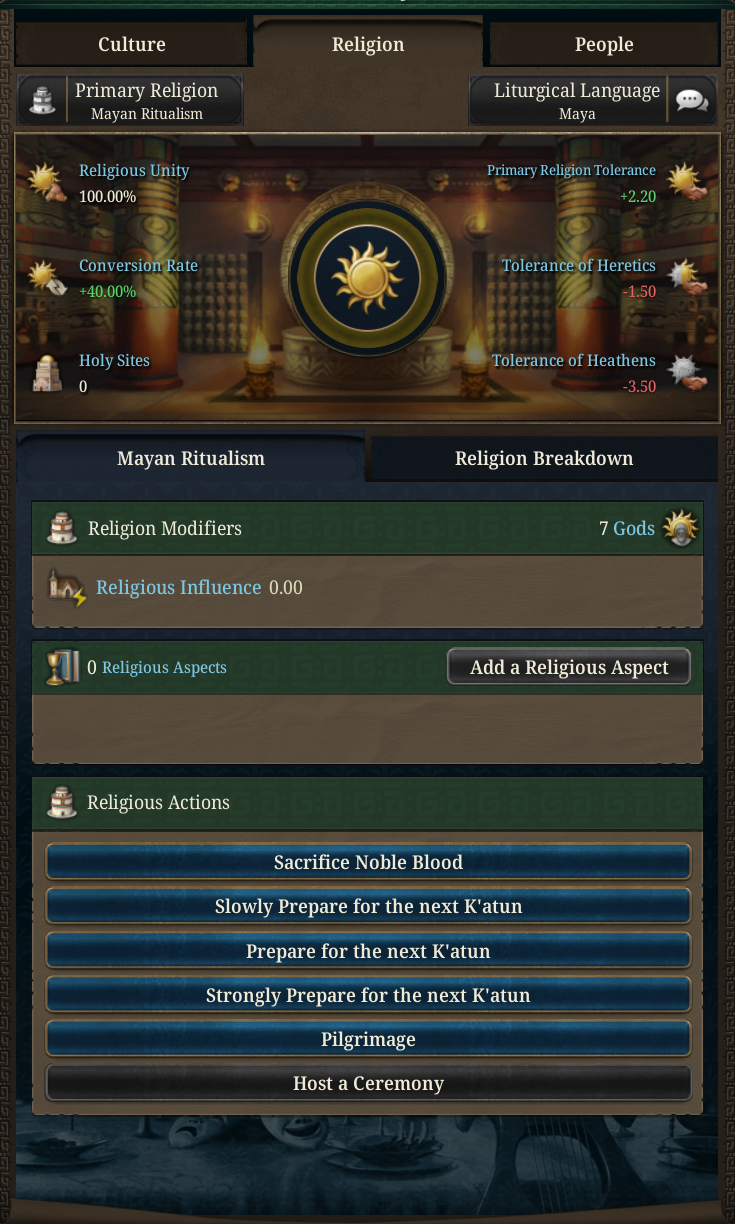
Different from Nahua Ritualism, Maya Ritualism doesn’t have any Doom, but centers instead around the concept of the K’atun.

The mechanic revolves around preparing for the K’atun celebrations every 20 years in the game. The player needs to invest resources using the different actions to raise the country’s preparations for the K’atun, measured with the Religious Influence currency.
The country can choose between three degrees of intensity in their preparations, and that will impact the effects they get while preparing for it.
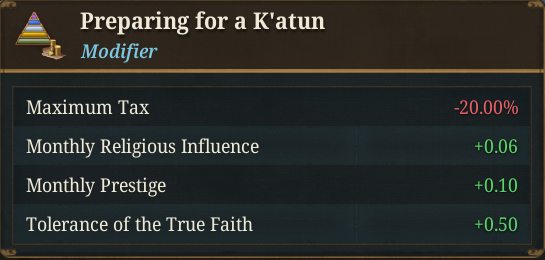
The K’atun will happen on the actual dates according to the historical Maya calendar, so the first one to encounter once the game starts will be in September 1342, with the following ones occurring every 19.7 years (so they will not always be on the same month). Once the K’atun finishes, the country will get an event with different outcomes depending on how much preparation they have been able to accomplish, as well as resetting the value of preparation back to 0.
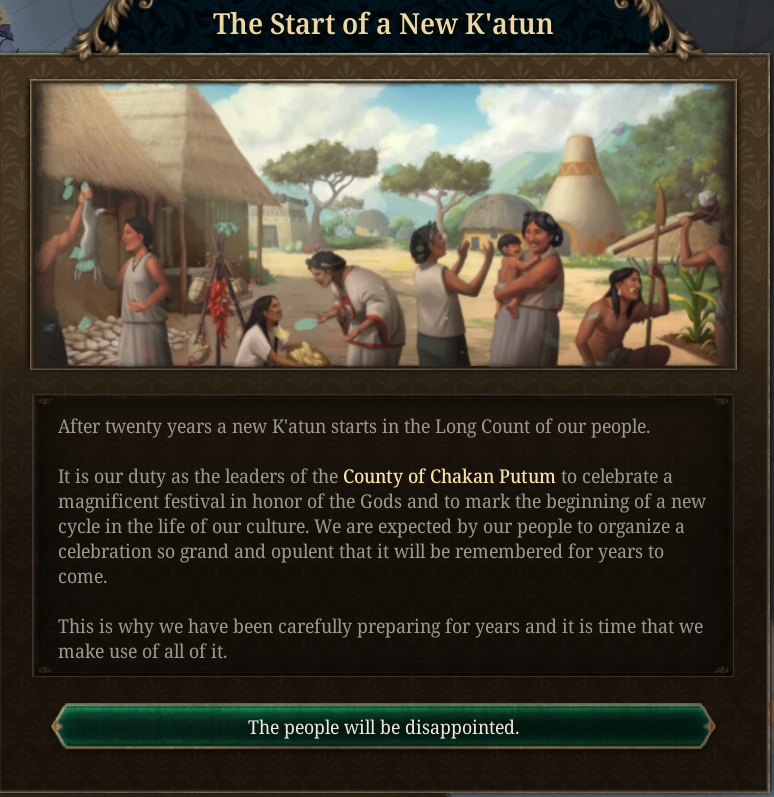
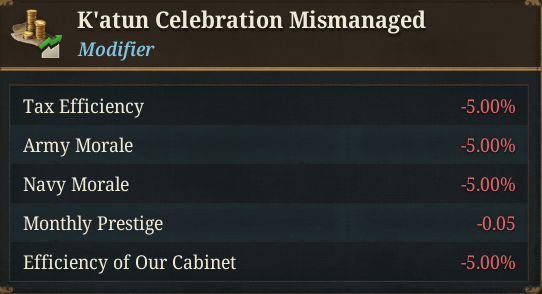
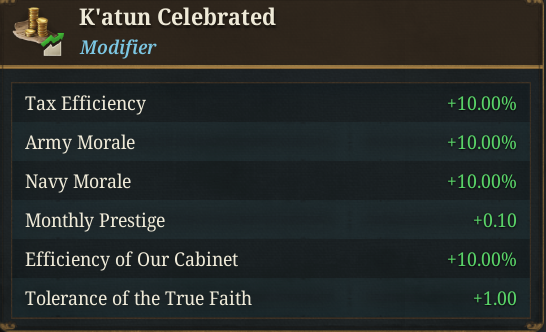
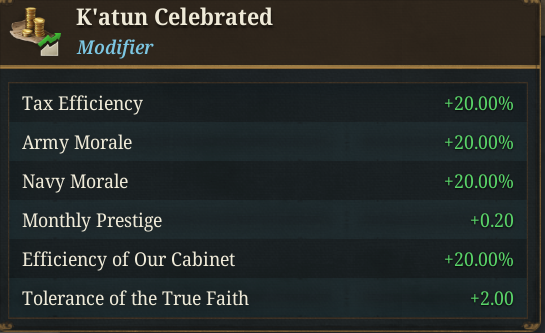
Besides the normal preparations, other additional actions can contribute to the gain of Religious Influence:
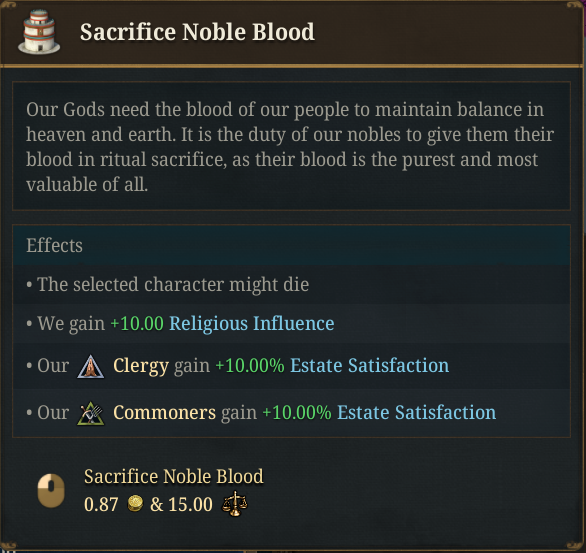
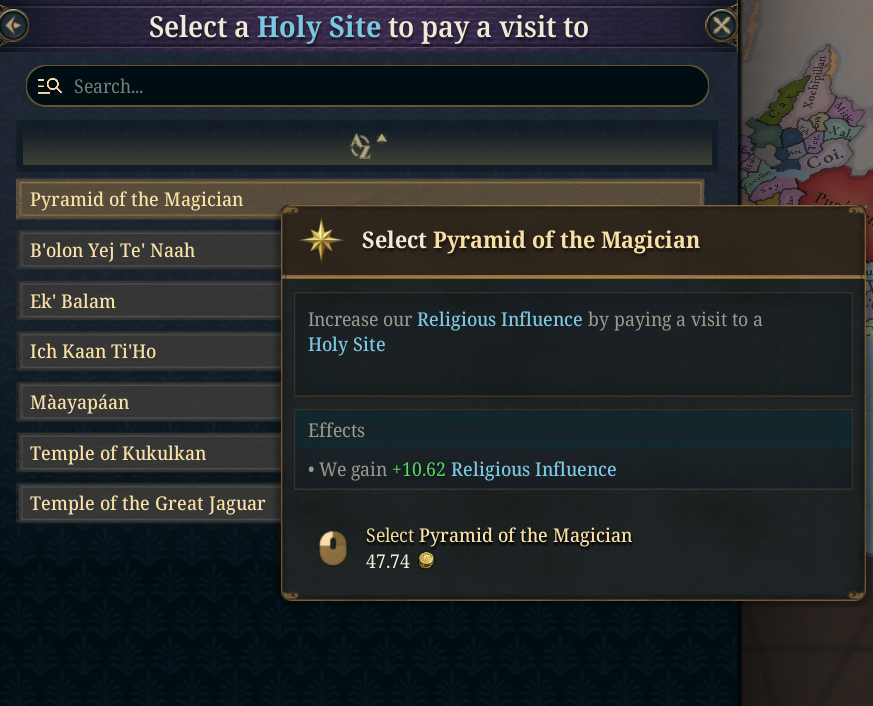
The religion also has other ways to spend the Religious Influence before the end of the K’atun comes, although at the risk of not being fully prepared when it does.
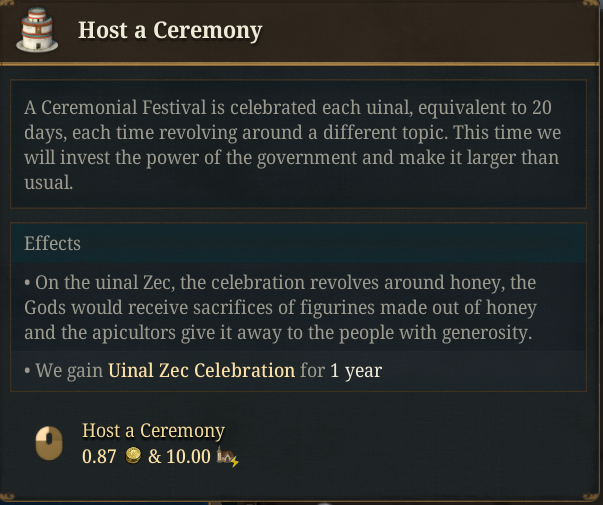
The modifier granted by the celebration will be different depending on the date on which the ceremony is hosted, varying according to the historical Uinal.
Same as Nahua Ritualism, Maya Ritualism also has gods, some of them are actually the same ones with different names (so we have dynamic naming for gods). For example, Quetzalcōātl and Kukulkan are the same god with dynamic naming.
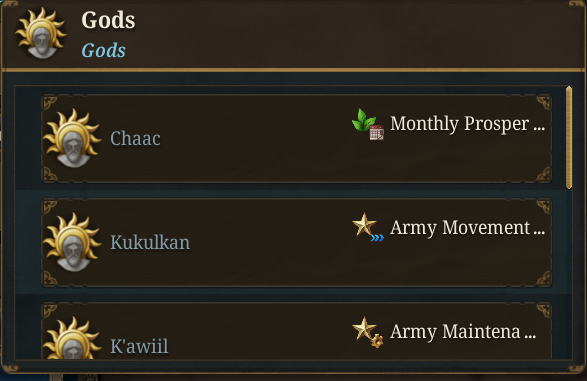
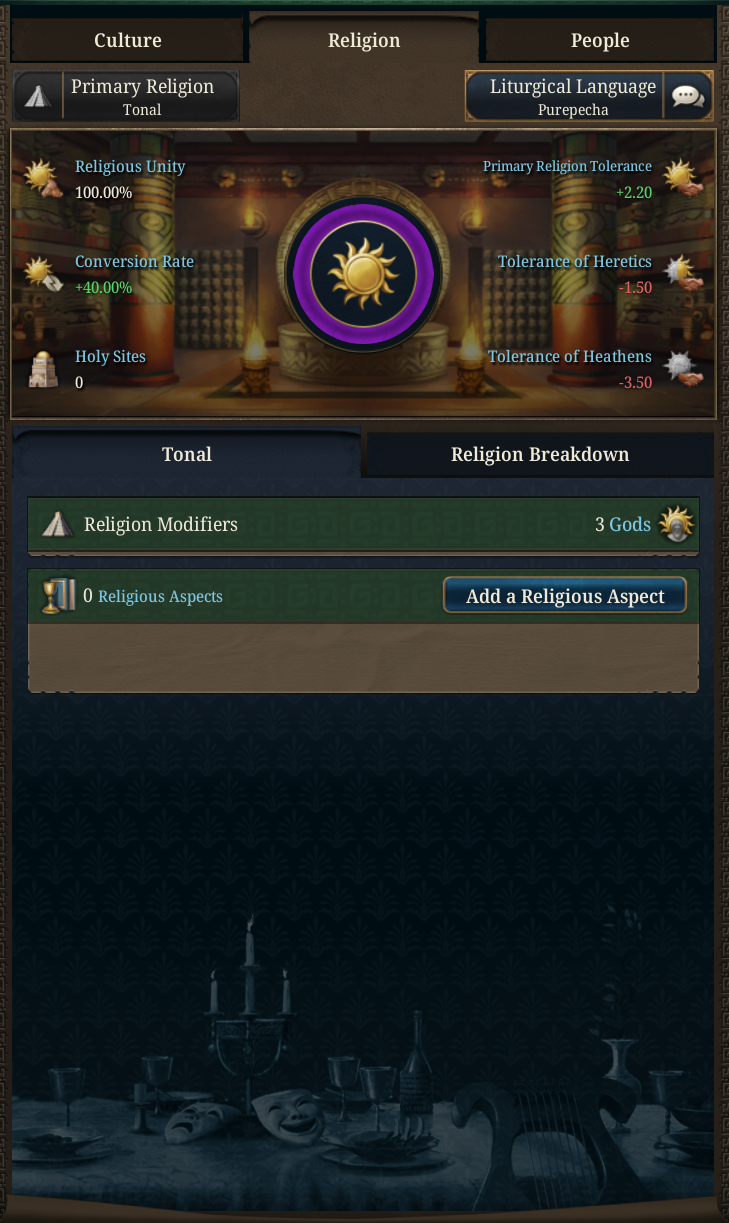
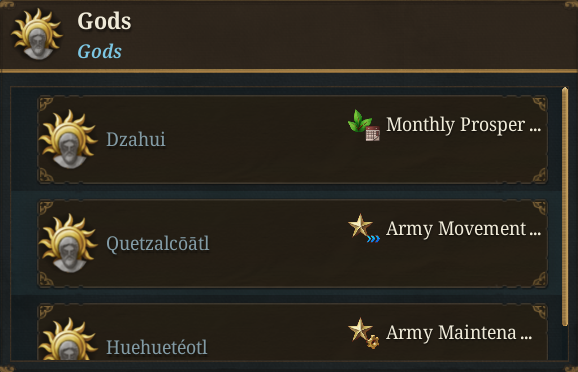
The gods of a country of these religions are always present for the countries, but the countries can choose a Religious Aspect to worship a specific god as their patron, doubling the effects of such a god.

And that’s all for today! We will come back on Friday, as we will talk in Tinto Flavour about the Aztecs!
And also remember, you can wishlist Europa Universalis V now! Cheers!
Today, we will talk about the Tonal religions! This is a religious group that covers the Mesoamerican religions:

As usual, please consider all UI, 2D and 3D Art as WIP.
Nahua Ritualism
Let's start with Nahua Ritualism, which is the religion in the group that has more detailed features:

This is the panel of the religion:


Let’s start with the core mechanic of the Nahua Ritualism, an old EU4 friend, Doom:



As you can see, Doom accumulates over time, and the bigger the country is, the more Doom it accumulates. It can be mitigated either by performing some mechanics, such as killing enemies and looting locations, or by some of the Religious Actions. But there’s only one way of completely escaping from it, which is Reforming the religion. This can be achieved by passing by enough Religious Focuses, the former EU4 ‘Reforms’:

These Focuses are a necessary pain, as they give a debuff to your country while they’re active, but you need to accumulate some of them to be able to reform the religion. Here you have some of them.







These are the available Religious Actions:








Maya Ritualism
Let’s talk now about another of the Tonal religions - Maya Ritualism:

Different from Nahua Ritualism, Maya Ritualism doesn’t have any Doom, but centers instead around the concept of the K’atun.

The mechanic revolves around preparing for the K’atun celebrations every 20 years in the game. The player needs to invest resources using the different actions to raise the country’s preparations for the K’atun, measured with the Religious Influence currency.
The country can choose between three degrees of intensity in their preparations, and that will impact the effects they get while preparing for it.

The K’atun will happen on the actual dates according to the historical Maya calendar, so the first one to encounter once the game starts will be in September 1342, with the following ones occurring every 19.7 years (so they will not always be on the same month). Once the K’atun finishes, the country will get an event with different outcomes depending on how much preparation they have been able to accomplish, as well as resetting the value of preparation back to 0.




Besides the normal preparations, other additional actions can contribute to the gain of Religious Influence:


The religion also has other ways to spend the Religious Influence before the end of the K’atun comes, although at the risk of not being fully prepared when it does.

The modifier granted by the celebration will be different depending on the date on which the ceremony is hosted, varying according to the historical Uinal.
Same as Nahua Ritualism, Maya Ritualism also has gods, some of them are actually the same ones with different names (so we have dynamic naming for gods). For example, Quetzalcōātl and Kukulkan are the same god with dynamic naming.

Tonal
This mechanics for gods is common to all Tonal religions, as well as many of the Folk Religions. We can now show the religion we have decided to call Tonal, namesake of the Tonal group, gathering under its umbrella beliefs related to those of the Nahua and Maya, but still distinct.

The gods of a country of these religions are always present for the countries, but the countries can choose a Religious Aspect to worship a specific god as their patron, doubling the effects of such a god.

And that’s all for today! We will come back on Friday, as we will talk in Tinto Flavour about the Aztecs!
And also remember, you can wishlist Europa Universalis V now! Cheers!






